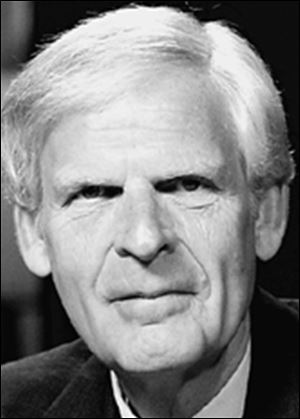
America is losing its uniqueness
2/19/2005
Bazer
A LOCAL, privately owned bookstore closes.
But there is no real concern; the large, corporate book chain will replace it.
A corner, privately owned pharmacy closes.
But why worry; the large, corporate drugstore chain will replace it.
A town's family-owned hardware store closes. But who cares; the huge depot store carrying everything essential for home and business including hardware will replace it.
A small women's clothing store closes.
Truly no big deal; the mall's department store carries all a woman requires and more.
Really no big deal, yet when we lose the bookstore, the pharmacy, the hardware store, the clothing store, the individually owned store of whatever type, do we not lose essential parts of our own community?
Do we not lose what far transcends what we may gain by greater assortments of merchandise and potentially lower prices?
What is lost is a uniqueness which makes a community different, that sets a locale apart from all others.
What is lost is the recognition between merchant and customer that makes a sale and a purchase more than a simple transaction, but rather a valuable person to person experience.
What is lost is the connection between seller and buyer wherein the seller has a vested interest and personal pride in satisfying the customer and wherein the seller is an expert on his merchandise, not one who happens to be in a particular department on a given day. Personal expert service, if you like.
Beyond any individual sale there is a loss of a basic foundation of our country, going back to our very founding, that there exists a key role for the individual entrepreneur/shopkeeper, that an individual could be successful through initiative, energy, and toil.
Losing the local bookstore, pharmacy, hardware store, clothing store in many ways echoes the loss during the past decades of the family owned farm.
Across our land what was tilled by grandfather, father, and son is now tilled by the huge, agribusiness conglomerates. Here it is not the shopkeeper who is gone, but the yeoman farmer so greatly extolled all the way back to Thomas Jefferson.
An echo is heard also when we witness the demise of the small downtowns. Retail is gone, found today only in our ever-expanding malls. (An aside: if a flood threatened a mall, would citizens sandbag around the clock as they did recently to save their downtowns?)
And while we may argue that ready parking, protection from the elements, products of all sorts under one roof, and maybe lower prices are advantages, do we not miss the ambience of our by-gone communities?
It is ironic that when many of us travel on vacation, whether in this country or abroad, we seek out the experience of small towns and their unique shops.
I do not believe it is stretching my case to decry as well our movement from the meandering, two-lane country road to the eight-lane interstate highway system.
Certainly, our travels are now quicker, but how many of us reach our destination pleased by our road experience? Did not one state look like another? Was not the food at one rest area in one state, the food at one rest area in a second state?
One, of course, might ask what did we eventually do with the saved time traveling the interstate. Was our rapidity worth the fatigue, frayed nerves, and exhaustion at our destination?
On a personal note I remember traveling years ago on a beautiful fall day on a back road paralleling New York's Hudson River. On both sides of the road were apple trees laden with fruit, spots to purchase fresh produce, scenic overlooks, unique antique shops as well as interesting small towns replete with historical sites, even ice cream stands.
The interstates hold no such pleasures. And to top it off, the back road was free of tolls and free of trucks.
The case can be made that the ubiquitous malls, food chains, interstate highways and the like serve to make us one country.
That a land as vast as ours requires common experiences to unite us as a people, as Americans.
That our federal form of government already places considerable emphasis on individual states and localities to do as each wishes, thereby necessitating some offsetting national experiences.
In response I would posit that other national characteristics such as network television programs, major sporting events, widely distributed movies, our common English language, and indeed, the American presidency blend us together as one people.
What I fear is not the loss of our oneness.
What I fear is the loss of our uniqueness.
What I fear is the loss of the individual in a corporate culture.
What I fear is a lost America.
Gerald Bazer is a retired dean of arts and sciences at Owens Community College.